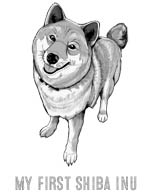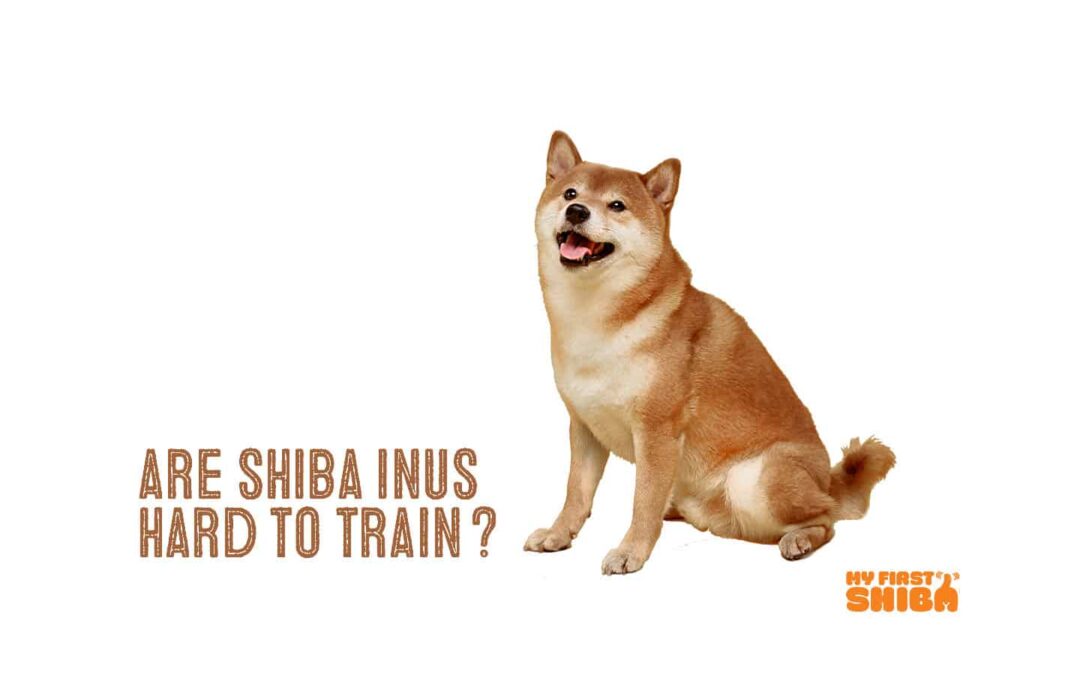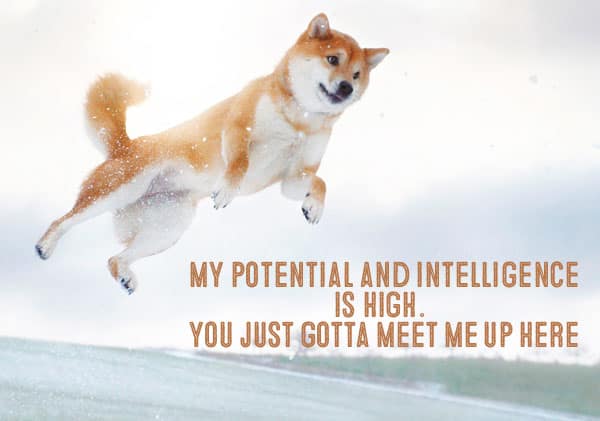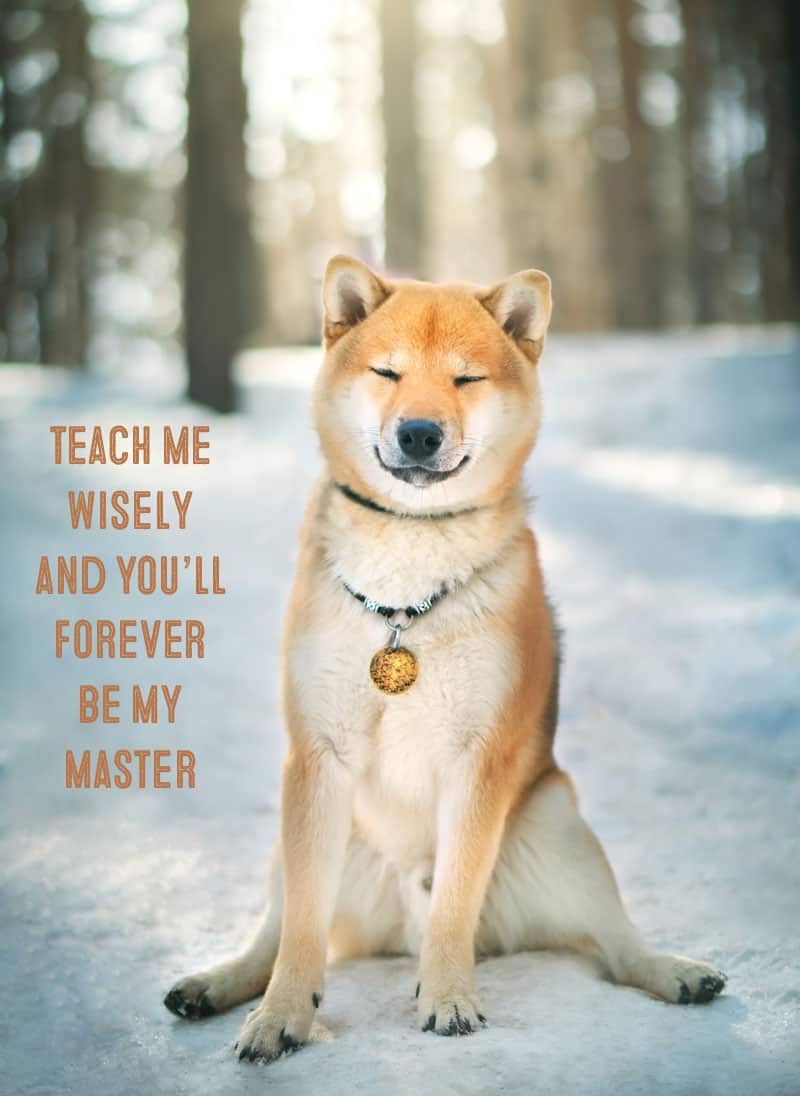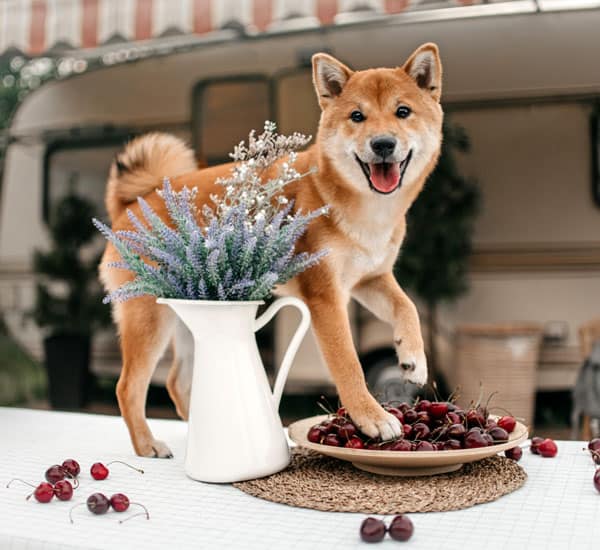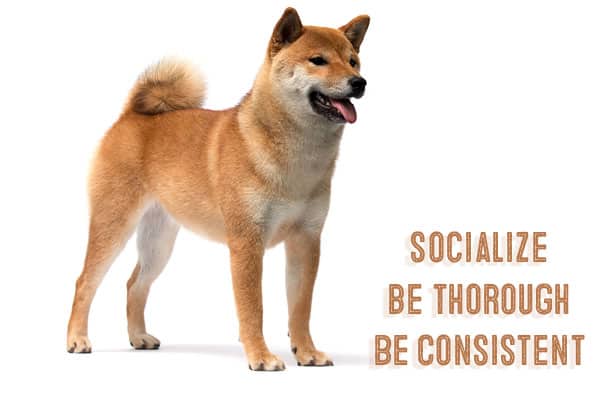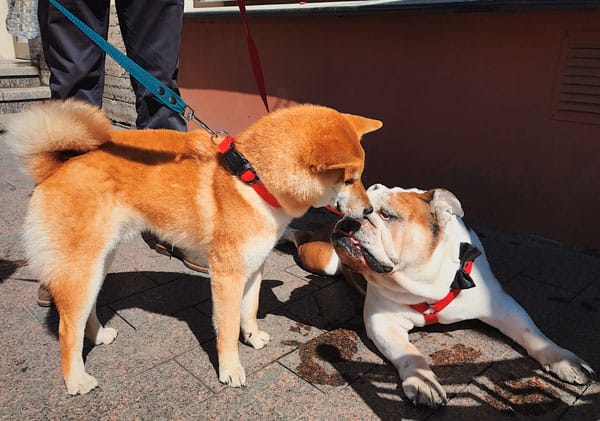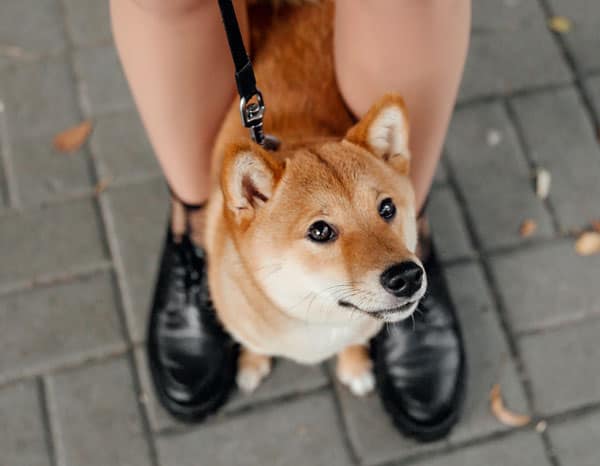On occasion, our posts contain affiliate links. However, we only recommend products that we truly believe in. For more information, visit my privacy policy page.
Shiba dogs have a reputation for being stubborn, willful, and hard to train.
And well, they earned that title – because usually, they are.
However, Shibas are not impossible to train. They can become obedient companions as long as you follow the right training protocols.
Important: Start Training at a Young Age
Younger Shibas are easier to train because you have complete control over their environment and boundaries during their most influential time of life.
No Shiba is too old to learn new tricks.
But when it comes to a willful breed like Shibas, the younger you can start teaching them good habits the better. That’s because Shiba Inus love to push boundaries and get set in their ways pretty quickly.
The sooner in their life, you can teach them good vs. evil, the less reluctant they’ll be to accept your leadership once they’ve already established how they like things to be.
Use Passive Training Methods
It may seem counterintuitive to use passive training methods on a stubborn breed.
But Shiba Inus do not respond well to aversive training methods such as anything that uses physical punishment.
If you do try to use physical punishment on a Shiba, they’ll likely fight back or shut down completely.
That’s not what you want, especially if it encourages aggressive behavior.
Instead of using physical punishment, Shiba Inus respond best to passive training and positive rewards.
Encourage good behavior with positive rewards, and discourage bad behavior by showing that bad behavior does not produce positive results.
For example, if you have a Shiba whining at the door to go on a walk, even though they just rejected your offer of a walk ten minutes ago, don’t give in. Once they stop whining, reward them with a walk.
That way, they learn that kind of vocal behavior doesn’t get them the attention they want.
Shibas want walks, treats, toys, and attention. But mainly treats.
Eventually, they’ll learn which behaviors get them what they want and which behaviors get the opposite.
Set Rules and Stay Consistent
Are Shiba Inus stubborn? The answer to that is yes. Like other stubborn dog breeds, they are searching for a weakness in the boundaries you set so they can get what they want.
So, when you make rules for your Shiba dog, make sure you stick to them. That way, they learn you’re serious about it, and they’ll learn that resisting is futile.
Here are some rules that make a well-behaved Shiba:
- No biting. As a mouthy breed, you need to teach Shibas that biting is never ok. Of course, all puppies nip. But no one likes an adult dog who nips. So, the sooner you can teach them that biting means no more playtime, the sooner you’ll have a bite-free life (which if you’ve had a puppy before, you know is the best life).
- No dominant behavior. All dogs try to be the alpha. But, Shibas are particularly willful in this regard. Don’t allow them to show dominant behavior towards you or other dogs.
- Boundaries. This is important. Train your Shiba to always respect boundaries. No bolting, or entering an unauthorized area until you give permission.
- NILIF – (Nothing in life is free). This is a training methodology that teaches your Shiba that they have to earn and work for the things they want and need (food, walks, play, toys, etc.). They’ll learn that food doesn’t just magically appear before them, and that they must offer good behavior in return for what they want.
Just remember that Shibas enoy their freedom, so try not to go overboard on giving them too many restrictions all at once.
Choose carefully which rules you want to enforce because you’ll have to enforce them forever.
Socialize, Socialize, Socialize
Socialization during the critical puppy imprint period is by far the most important task you must do to ensure a well-adjusted Shiba.
The more familiar Shibas are with their environment, the more comfortable and well-behaved they’ll be. It’s important to expose them to a variety of environments and situations – the more, the better.
Unsocialized Shibas tend to be skittish around new people and dogs. That’s why it’s important to introduce a young Shiba to as much people (various ages, gender, ethnicity, etc.) and dogs as possible from early on (after proper vaccination).
Make sure to enforce good dog manners when at the dog park or a play date. Don’t let them be too aggressive or dominant towards the other dog, even if that dog is allowing it.
If exposed to other dogs and people properly, Shiba ownership can result in a happy and social companion.
Keep Your Cool
Training a Shiba Inu takes a lot of patience because many Shibas get a kick out of testing boundaries.
It can be frustrating when you’ve worked so hard to train them, and suddenly they decide not to comply.
As frustrating as it is, controlling your own emotions makes a huge difference.
Shibas are very sensitive to human emotions, even if they don’t react like humans.
If you start to feel angry at them, they’ll respond with either angry or indifferent behavior, which is counter to how you want them to react.
So, take a deep breath. If you relax, chances are your Shiba Inu will relax too.
Takeaway
Owning a Shiba Inu may not be easy for some of us. Yet the rewards of living with such a special dog breed is a true privilege that’s hard to describe.
Training a Shiba Inu isn’t hard as long as you have the right mindset and guidelines.
As lovers of Shiba Inus, we try to give the most expert advice for training and owning a Shiba Inu. To find more tips and tricks for Shiba Inu training, visit our blog!
Thanks for visiting Myfirstshiba.com! We do our very best in providing our readers with awesome content about our beloved Shiba Inu breed. Some of our articles include reviews and recommendations to our favorite products. We do occasionally earn commissions from certain affiliate links that help support our work and mission. Thanks again for visiting. Shiba Kisses To All!
